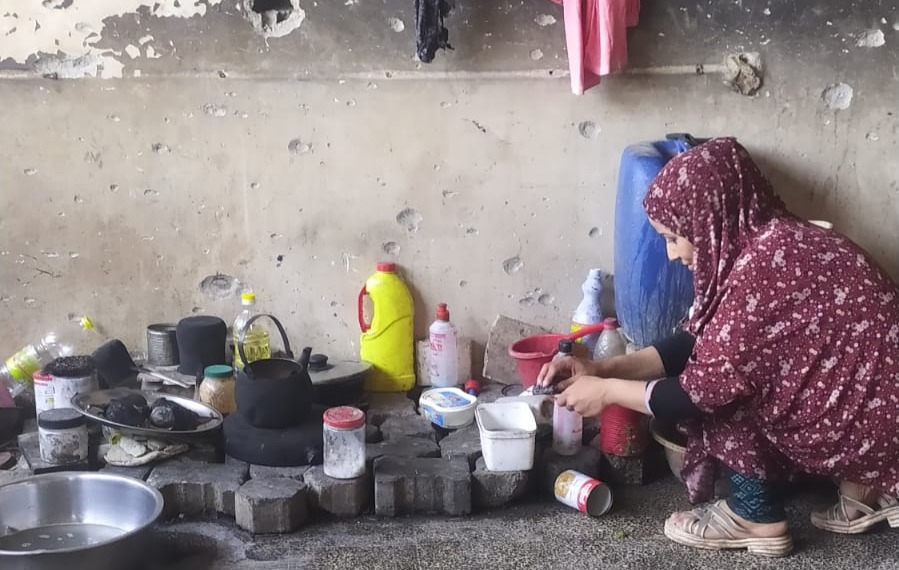While the worsening famine in Gaza is well-documented, there is only limited data on how women in Gaza are experiencing, navigating, and affected by the crisis.
Tomorrow, WRC will be publishing a report that redresses this lack of documentation. Drawing on data from and interviews with UN agencies and frontline humanitarian workers, as well as testimonies from women in Gaza themselves, the report illustrates how the famine has disproportionately impacted women. It provides urgent, actionable evidence and recommendations for relief, protection, and long-term recovery that center the voices, needs, and leadership of Gaza’s women.
Much of the report consists of facts and figures, but its beating heart is the testimony of the women in Gaza who shared their stories with lead author Belal Jahjooh and his research team. Belal’s preface to the report movingly speaks to this, and we share it in full here:
This report gives voice to a truth too often buried beneath statistics: famine in Gaza is not a byproduct of war, but a deliberate act. Every person in Gaza lives under its weight, yet for women and girls the burden is heavier, the sorrow deeper, the silence more crushing.
The testimonies gathered here are filled with grief that has no measure. Mothers boil leaves and tell stories to children so they might forget their hunger. Widows faint in aid lines, returning home with nothing but despair. Babies are born too weak to cry, entering a world where even their first breath is stolen by hunger. Women with disabilities face barriers so harsh that survival itself becomes almost unreachable.
This grief is not fleeting; it is woven into every hour of Gaza’s days and nights. It is the sorrow of mothers who bury husbands killed while searching for bread, of women who starve themselves so their children might live, of girls who lose their childhoods in the shadows of hunger and fear. It is sorrow that lingers in the smoke of burning scraps used for cooking, in the humiliation of harassment and assault, and in the silence of empty homes where dignity has been stripped away.
What once was a humanitarian system has collapsed. Hospitals, clinics, and aid networks that should protect life lie in ruins. Under siege, it is not only the humanitarian order that has fallen, but also the very foundations of international law. The promises that should shield civilians in war have been broken, leaving Gaza with no refuge, no protection, no justice.
And yet, even in this wasteland of grief, courage endures. Gaza’s women hold families together in the rubble, feed others while starving themselves, and cradle children through nights of hunger and fear. Their resilience is extraordinary, but resilience is not infinite. No society should be condemned to such grief, and no women or girls should be abandoned to carry sorrow so heavy, so unrelenting, and so undeserved.
For generations, displacement, blockade, and violence have shaped the lives of Palestinians in Gaza. Most who live there are refugees, born without a state and raised without the promise of return. For decades Gazans have defied the odds, marked by the endurance of a people determined to carry forward. But this war threatens to suffocate the history, present, and future of Gaza.
This report is not only a chronicle of suffering; it is a plea for conscience. The international community must end the weaponization of hunger, restore safe humanitarian access, and place women and girls, including those with disabilities, at the center of relief and recovery.
The grief and sorrow that echo through these pages must not be allowed to define Gaza’s future. To turn away now would not only betray its people, but betray humanity itself.
-Belal Jahjooh, lead author


